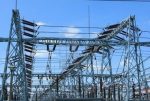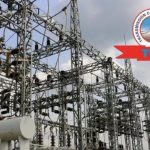We Can’t Guarantee End To Frequent National Grid Collapse – FG

The Federal Government had disclosed that it has not found the antidote to the frequent collapse of the National Grid, a development that shut down power supply to the whole country many times in 2024.
The Minister of Power, Mr Adebayo Adelabu, said this on Monday when he appeared before the Senate Committee on Power in Abuja.
Adelabu said there was no guarantee yet that the system would not continue to crash in 2025, so long as insecurity, vandalism, and poor infrastructure remained the major threats to the grid.
Adelabu who was at the senate to defend the power sector budget for 2025, also disputed the widely quoted figure that the country’s national grid collapsed 12 times in 2024, representing at least one collapse in each of the 12 months of the year.
Faulting the figure, the minister said the grid collapsed “only eight times and not 12 as always reported.”
He said to achieve a permanent end to grid collapse would require concerted efforts, including tackling insecurity and the frequent vandalism of power infrastructure.
“There is no guarantee that there will be no more grid collapse. What we can do is to make sure that it is minimal and that after a collapse, we rectify it as quickly as possible,” the minister stated.
He told the committee that the ministry was working assiduously with security agencies to manage the situation and restore the system back to work as soon as another collapse occurred.
Speaking further, Adelabu said the ministry worked hard in 2024 to stabilise the grid, adding, “We had plans to stabilise the grid and other transmission infrastructure. I am happy to also inform you that out of the eight collapses of the national grid that we experienced during 2024, five were full collapses, while three were actually partial collapses.
“Out of the five full collapses that we experienced, three of them were actually due to generation problems where we had issues with sudden reductions in generation compared to the power being taken up by the users, which affected the frequency imbalance on the grid, and the reason for this was not far-fetched.
“Out of the five, three were from generation, while two were from vandalism issues, and I don’t want to emphasise this vandalism issue because we are all aware of what happened.”
READ ALSO
•Court Remands Pastor Enenche’s Brothers, Ex-Dunamis Pastor In Prison
•Man Who Disrupted 2006 Oroki Day Seeks Forgiveness From Aregbesola
He disclosed that due to insecurity challenges and resistance by bandits, one of the main power supply lines to northern Nigeria, the Shiroro-Mando-Kaduna 330 kV line, had yet to be restored to supply power to some parts of the region.
The region currently relies on the Uwaji-Apir-Makurdi 330 kV line, already burdened by similar threats of vandalism, in the interim.
The minister said the cost of repairs was clearly beyond the budget of the Transmission Company of Nigeria (TCN), which had so far sourced unbudgeted funds of up to N9 billion to make repairs.
The minister informed lawmakers that the criminals used dynamite and other deadly explosives to destroy as many as nine towers on the line.
“We had to work with our soldiers and other agencies. The first time we went there, it was like a civil war situation.
“They (bandits) had to be attacked from the air,” he added.

Olamilekan Adigun is a graduate of Mass Communication with years of experience in journalism embedded in uncovering human interest stories. He also prioritises accuracy and factual reportage of issues.









